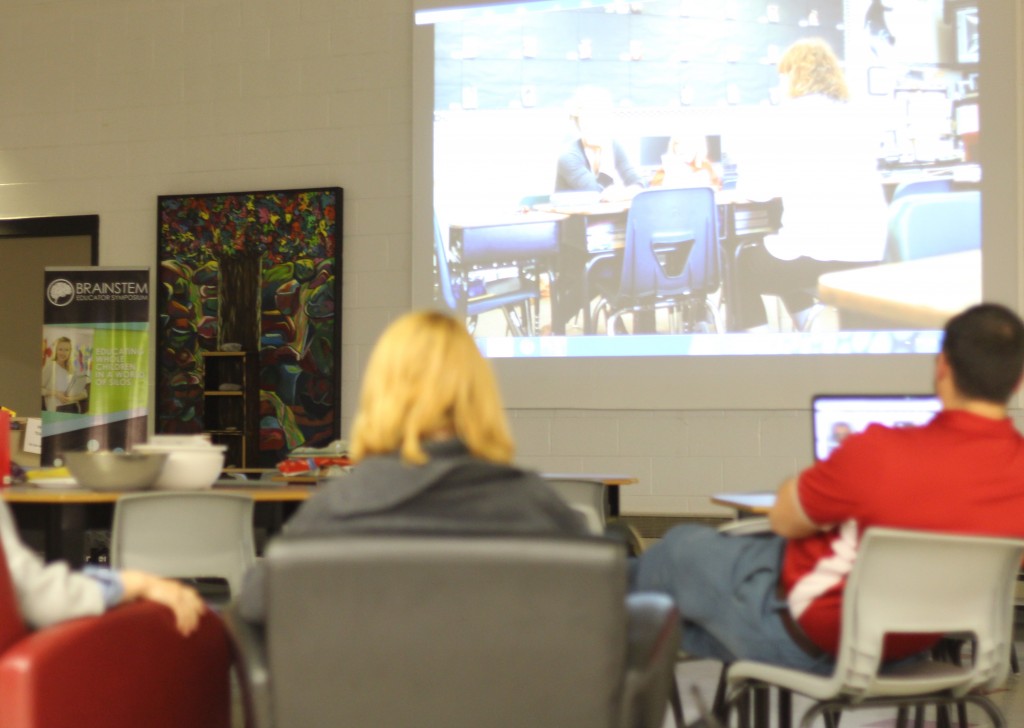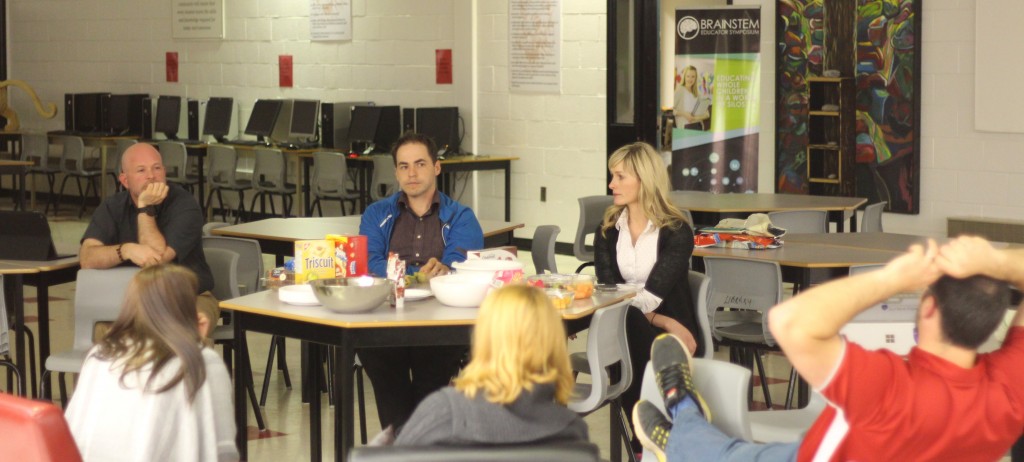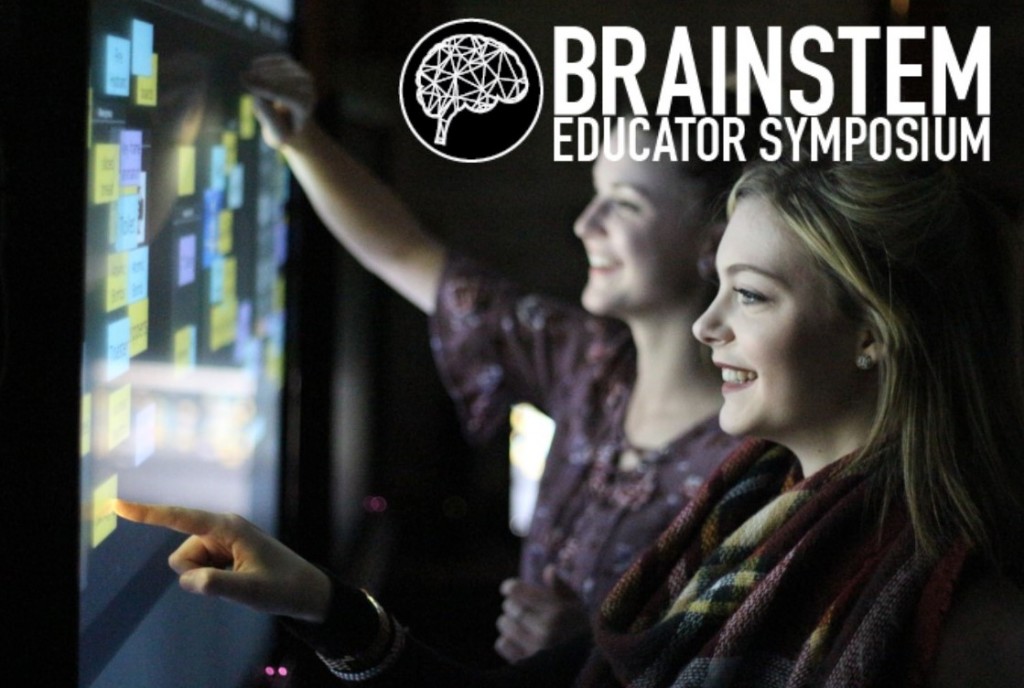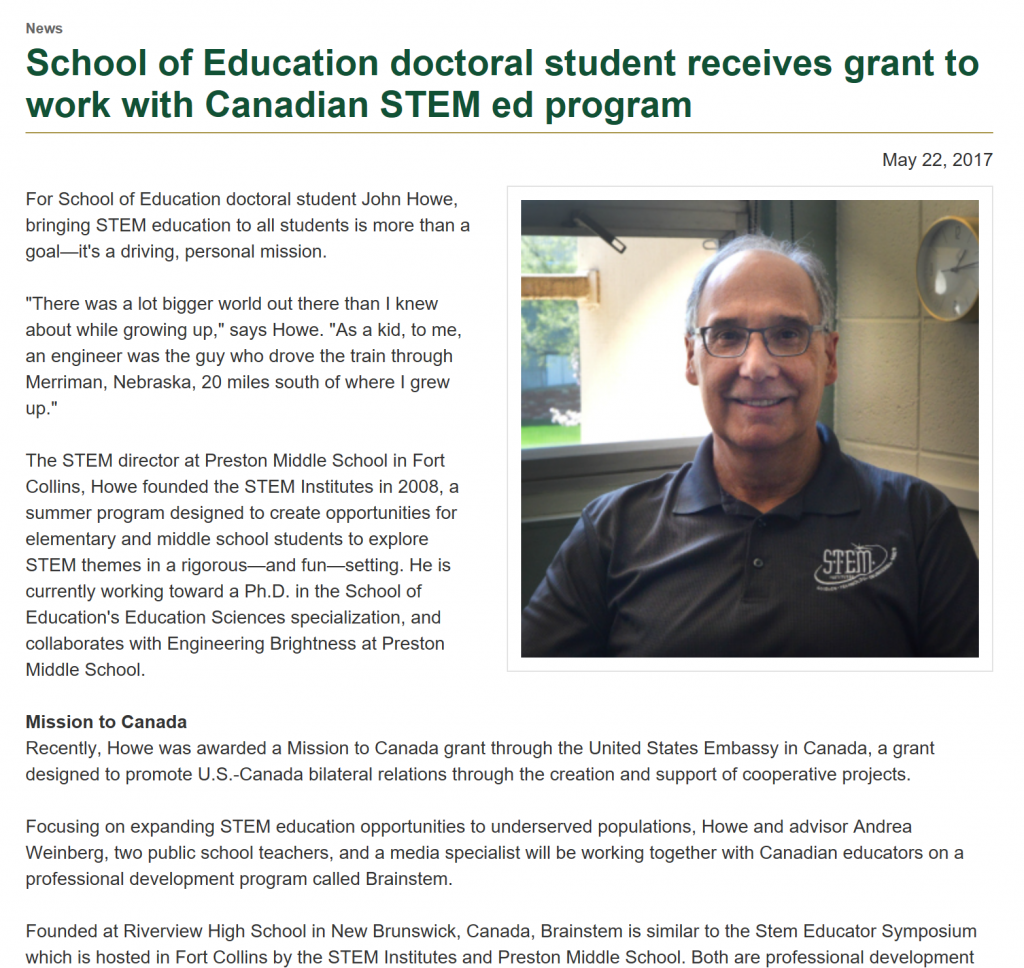Monthly Archives: June 2017
Brainstem screens “Most Likely to Succeed”
 Thanks to Michael Fox, we were able to show the video, “Most Likely to Succeed”. There were ten of us tonight. Not bad considering it is the last week of classes.
Thanks to Michael Fox, we were able to show the video, “Most Likely to Succeed”. There were ten of us tonight. Not bad considering it is the last week of classes.
It started out talking about how AI is going to fairly quickly make the middle class obsolete and then what? It talked about the conflict between getting good grades and scores on SATs to get into college vs having the skills to perform once you are there and/or in the work force. If you don’t have the scores, will you get in? What good does it do to get in if you can’t perform when you are there? Do you have to take one option or the other?
This conflict of grades is one of the reasons why we have purposefully eliminated all enriched science classes and created a new system of essentials and extensions. Previously, there were student who should be in the enriched class, but chose not to in order to take the easy way to an inflated grade. Likewise, there were students who would sign up for the enriched class, but quickly figured out that they were over their heads and were now stuck in a class. Our Essentials-Extensions model makes is possible to anyone to get what they need to just pass for those who are struggling and forces ALL students to perform at an enriched level should they want to get their high mark. There is no easy way to an inflated grade anymore.
At High Tech High, the idea of students getting their variety of topics and disciplines comes not from their choice of a variety of classes but rather in a more personalized way by carefully assigning tasks to students within a multidisciplinary project. So one gets to behave like a director, while another gets to behave like a graphic artist and still another gets to be a mechanical engineer, all inside a history project.

I like how they started taking video at the start of a year and then periodically returned to get the whole picture. I truly think we should do this with a couple of students coming from the middle school. I think that the new sequence we are preparing for them as they travel from our new Math-Science 9 and 10 and the new way we are doing English 9 to Armand’s Modern History and my chemistry in their grade 11 year, and finally Armand’s world issues, and my physics 11, 12 and Science 12 in their grad year, will provide a step towards the right direction while staying inside the confines of our current system. Someday, maybe I will get asked to help us be free of the current system. Until then, we are looking for some steps in preparation.
The Science 12 class has been trying to do this multidisciplinary project for a while. The Science 12 classes entered two projects into the Youth Entrepreneurship Challenge. One of them placed third. They did not really need the money, but they did need the mentorship. Next time, we will make sure that the mic is on before their time starts and that everyone is paying attention so that they do not have to drop their most important sentence that they actually engineered their own automated hive that should help combat the pesticide and mite problem experienced by the bees.
The documentary talked lots about skills versus knowledge. I believe that there are lots who are on the bubble who would switch to competencies/skills IF there was some way to measure them and assess them, more that just a gut intuition “feels like”. When I can measure it, then I will teach it.
The documentary stirred a great conversation that lasted almost 1 hr afterwards on a school day, past supper time on the last week.
Brainstem Symposium

From Coach K
I recently attended the BrainSTEM Symposium at Riverview High School (RHS). This was a multi-day event held during school hours to showcase how a school can look, feel, and operate when faculty shifts focus from teaching subjects and students to growing humans.
The symposium’s focus was not to tell educators about a fancy new methodology but rather to show how a real school is growing, how students are responding, and developing, and how it can be done. The how-to happened on both a micro level (individual student successes and different classes) and a macro level (whole school changes, and organisational strategies.
I was able to speak with teachers and students, in their classes, about some issues critical to student success:
1. How RHS teachers focus on a finite number of curriculum outcomes in each class (the ones truly necessary for later success in life) for students to pass the course. While others (the ones necessary to behave like a chemist/historian/mathematician) are EXTRA and require boat loads of work to make up the mark between 60-100.
1. The FOCUS is the important part. As students can no longer just get random marks here and there that add up to 60%. 60% is a defined set of skills and knowledge
2. How RHS Teachers spend small portions of each day helping students in a “Working Period” that is optional for students. Teachers alternate between working periods and class specific teacher meetings each day. This allows students to get regular help when they need it. Get extended breaks when they do not need help. While also giving teachers time to meet with each other during school hours.
3. I was also able to see how students are given real opportunities to grow themselves, regarding passions and soft skills. These students work on semester and year-long projects that focus on real world issues and interests. The students actually build solutions to problems. They mix chemicals, carve wood, wire robots, call municipal officials, MLAs, MPs, and professionals and more.
1. These student-led projects aren’t the same old school projects with the option to choose between making a powerpoint presentation, movie, or website. This is an entire learning experience with a purpose.
The BrainSTEM Symposium was more than an interesting experience. The highlights I listed are just a sampling of what was going on at RHS. However, the lessons of the symposium are bigger than lesson plans and projects.
School can be different; School HAS to change. Our students are living in an ever-changing world. We can no longer pretend to know what their working and personal lives will look like. We do not know what knowledge and hard skills the students need. However, we know they need to know how to change. They need to know how to make decisions, solve problems, find knowledge, learn skills, create new things.
School has to change, and RHS is trying to show us how it can change.
Coach K
“It is easier to build strong children than to repair broken men.” – Frederick Douglass


